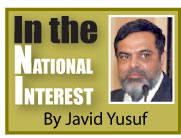Columns
Burial rights, Shani, HRCSL and the importance of independent institutions
View(s):Two interventions by the Human Rights Commission of Sri Lanka (HRCSL) last week highlighted the role and significance of independent Commissions in protecting the rights of the citizenry against State encroachment of such rights.
The first was the HRCSL’s letter to the Health Ministry Secretary and the Health Services Director General with regard to the Government’s decision to only permit cremation of those who died due to COVID. This action of the Health authorities is in contravention of World Health Organisation guidelines which permit both cremation and burial in the event of death caused by COVID-19.
 The second was a letter to the Prisons Commissioner urging him to take all possible steps to protect the life of former CID Director SSP Shani Abeysekara amidst concerns expressed with regard to his safety. This follows reports, that the ace sleuth who has been in custody for several months, had contracted COVID.
The second was a letter to the Prisons Commissioner urging him to take all possible steps to protect the life of former CID Director SSP Shani Abeysekara amidst concerns expressed with regard to his safety. This follows reports, that the ace sleuth who has been in custody for several months, had contracted COVID.
In its letter to the Health Ministry Secretary and the Health Services Director General dated November 25, 2020 the HRCSL has said it had received complaints and expressions of concern from people of various religious groups including Muslims, Christians and Buddhists on their inability to perform final religious rights following the deaths of people afflicted by COVID.
In its letter, the HRCSL has drawn the attention of the health officials of the Commission’s statutory duty in terms of Section 10 (c) and (d) of the Human Rights Commission of Sri Lanka Act No.21 of 1996 to advise the Government on the promotion and protection of fundamental rights and to make recommendations regarding measures which should be taken to ensure that national laws and administrative practices are in accordance with international human rights norms and standards.
The HRCSL has gone on to point out that performance of final religious rights at burial ceremonies is a form of manifestation of one’s religion or beliefs as guaranteed by Article 14 (1) (e) of the Constitution.
The Commission states that it fully recognises the need to impose restrictions on certain fundamental rights to protect public health at this time but also that it is required to examine whether such restrictions are compatible with the relevant Constitutional provisions and international human rights obligations.
After examining such restrictions the Government, the HRCSL has concluded that the mandatory requirement for cremation imposed is not a valid restriction of the freedom to manifest religion or belief.
The HRCSL has recommended that Gazette No. 2170/8 dated 11 April 2020 should be amended to ensure its compatibility with the Constitution and Sri Lanka’s international obligations by permitting burials as well as cremations of bodies of people who succumb to COVID-19, while adhering to required health guidelines.
In its second intervention the HRCSL has, in its letter dated November 25, 2020 addressed to Prisons Commissioner General Thushara Upuldeniya, drawn his attention to concerns with regard to the safety of SSP Shani Abeysekara and urged that strong preventive measures be taken to ensure that his life is protected.
In the letter issued under the hand of Human Rights Commissioner Ramani Muttetuwagama, in terms of the powers vested under the Human Rights Commission of Sri Lanka Act No. 21 of 1996, the Prisons Commissioner General has been urged to inform the HRCSL of all steps taken by him in response to the HRCSL’s letter on or before November 30, 2020.
The ball is now in the Government’s court and it remains whether it will take steps to comply with the recommendations of the HRCSL which are clearly considered opinions which should guide the Government in its duty to protect and promote Human Rights in accordance with the Constitution.
Apart from the substantive issues that have engaged the attention of the HRCSL in their two interventions last week, it is useful to examine the role of the HRCSL as one of the institutions which were empowered to function independently in terms of the 19th Amendment to the Constitution and what its future would be after the passage of the 20th Amendment.
The framework provided for all the commissions to function independently by the 19th Amendment was fully availed of by the different Commissions to varying degrees. One such commission was the Human Rights Commission which under the leadership of Deepika Udugama made very valuable interventions with regard to human rights at different times when such action was required.
The HRCSL was internationally recognised and granted ‘A’ grade status in terms of the Paris Principles following the positive role played by it within the framework created by the 19th Amendment.
After the new HRCSL is reconstituted in pursuance of the 20th Amendment, it will find itself hard put to hold onto this status after the enactment of the 20th Amendment.
The independent Commissions have also provided safeguards to citizens in different ways. To name a few, the Right to Information Commission enables the public to obtain governance related information in their capacity as stakeholders in Government.
The Police Commission and the Public Service Commission create the climate for the Police and Public Services to function independently and professionally.
With the members of these two Commissions being appointed directly by the President and the Police Commissions being transformed into a complaints related mechanism in respect of Police officers, it will take a great deal of courage and guts for Police officers and Public servants to function independently.
(javidyusuf@gmail.com)


Leave a Reply
Post Comment